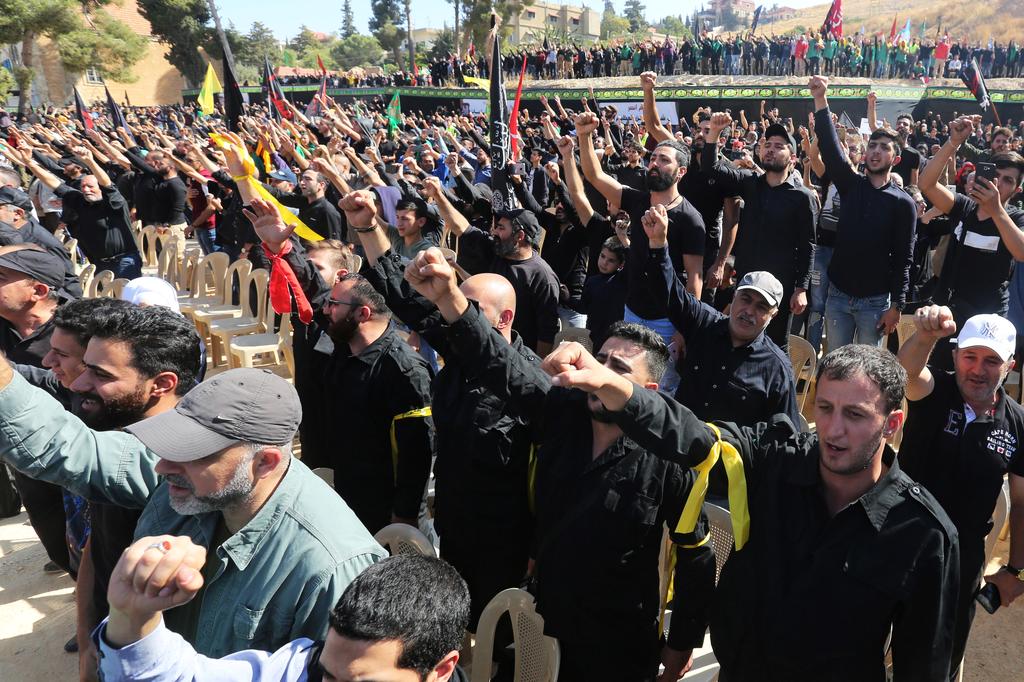
BEIRUT (Reuters) – Lebanon braced for a third day of unrest on Saturday after anti-government protests fueled by rising fury over an economic crisis erupted across the country and descended into riots on the streets of Beirut.
Small groups of demonstrators gathered in central Beirut in an effort to keep the protests going, with storefronts of banks and upmarket retailers in the capital’s commercial district smashed in and fires still smouldering from thHee night before.
Prime Minister Saad al-Hariri gave his government partners a 72-hour deadline on Friday to agree on reforms that could ward off economic crisis, hinting he may otherwise resign.
Lebanon’s Hezbollah says does not want government to resign
The latest unrest erupted out of anger over the rising cost of living and new tax plans, including a fee on WhatsApp calls, which was quickly retracted after protests – the biggest in decades – broke out.
In a televised speech addressing the protests on Saturday, Hezbollah leader Sayyed Hassan Nasrallah said the group opposed the government’s resignation, and that the country did not have enough time for such a move given the acute financial crisis.
“Everyone should take responsibility rather than being preoccupied with settling political scores while leaving the fate of the country unknown,” said Nasrallah, adding that Lebanon could face “financial collapse”.
“All of us have to shoulder the responsibility of the current situation that we arrived at in Lebanon. Everyone should take part in finding a solution,” added Nasrallah, whose Iranian-backed Shi’ite group is Lebanon’s most influential.
The protests that swept villages and towns across the country on Friday recalled the 2011 Arab revolts that toppled four presidents. Lebanese from all sects and walks of life waved banners and chanted for Hariri’s government to go.
“People will definitely go back out today because they’re in pain,” said Ramzi Ismail,a 60-year-old engineer. “But we are against clashes with the army or security forces and vandalism.”
“TWO BIG DANGERS”
In the speech, Nasarallah predicted that imposing more taxes would lead to an “explosion” of unrest.
He said Lebanon was facing two big dangers – financial and economic meltdown and popular unrest.
“If we don’t work toward a solution we’re heading toward a collapse of the country, it will be bankrupt and our currency will not have any value.”
“The second danger is a popular explosion as a result of wrong handling of the situation,” Nasrallah said.
The unusually wide geographic reach of protests has highlighted the deepening anger of the Lebanese. The government, which includes nearly all Lebanon’s main parties, has repeatedly failed to implement reforms needed to fix the national finances.
“The protests must continue because this is a matter of our dignity. We’ll be left humiliated otherwise,” said Miriam Keserwan, 28.
Riot police in vehicles and on foot rounded up protesters late on Friday, firing rubber bullets and tear gas canisters to disperse riots in Beirut that grew violent as the night wore on, leaving streets strewn with glass and burning debris.
Lebanon’s internal security apparatus said 52 police were injured on Friday and its forces arrested 70 people.
“I can’t blame the people who are doing this,” said 26-year-old Charbel Abyad, referring to the city’s damage. “Some have no jobs, no healthcare and no education. They are being mistreated and they can’t help but express it this way.”
Reporting by Eric Knecht, Laila Bassam, Suleiman Al-Khalidi and Imad Creidi, editing by Samia Nakhoul and Ros Russell



